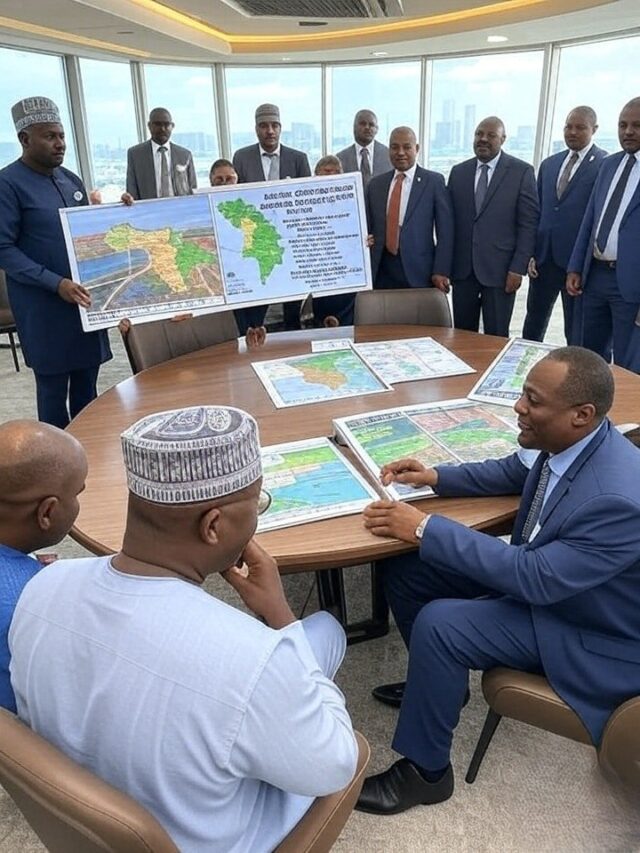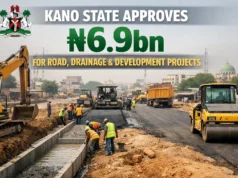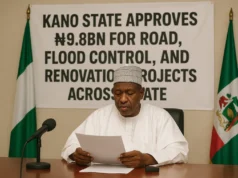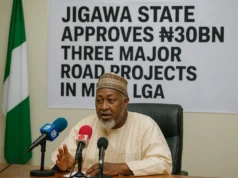On Aug. 13, Nigeria’s Federal Executive Council (FEC) set aside a whopping N493 billion for two big infrastructure projects: upgrading the Kano–Katsina Road and building a new Carter Bridge in Lagos State.
Minister of Works, Senator David Umahi, shared details from underwater checks done in 2013 and 2019, which showed the Carter Bridge’s foundation is badly damaged by illegal sand mining, erosion, and rust on its piles and piers. Julius Berger, the contractor handling the underwater and structural fixes, said the bridge is too far gone and needs a full replacement.
Umahi revealed, “Building a new Carter Bridge will cost around N359 billion, and we’ve started talks with Deutsche Bank for possible funding.” He also noted similar underwater issues with the Third Mainland Bridge, with rehab pegged at N3.8 trillion and a new build at N3.6 trillion.
He added, “FEC okayed hiring at least seven expert contractors under an EPC+F (Engineering, Procurement, Construction, and Financing) deal to dig deep, design, and bid for either fixing or rebuilding both Carter and Third Mainland bridges.
”Umahi also updated the cost for the 152-kilometre Kano–Katsina Road due to tough economic times. The road, split into two parts by the last government, saw big price jumps. “Section One, 74.1 kilometres, was first given out in 2013 for N14 billion, later bumped to N24 billion, and now stands at N68 billion. Section Two, 79.5 kilometres, started at N29 billion in 2019, rose to N46 billion, and is now N66.115 billion,” he explained. Together, both sections now hit N134 billion, with N6 billion from the 2024 budget and N34 billion from 2025 for Section One, while Section Two gets N80 billion over the same period. “Plus, FEC greenlit advertising PPP bids for these projects,” he said.
Umahi listed other bridge fixes FEC approved, including Jalingo Bridge in Taraba State, the burned Ido Bridge needing three spans removed, Keffi Flyover in Nasarawa State, Mokwa Bridge in Niger State, a damaged bridge on the Abuja-Kogi route, bridges between Lagos and Ibadan hit by vehicle crashes, Jebba Bridge in Kwara State, and the Itokin–Ikorodu Bridge in Lagos. “These emergency jobs will be packaged and sent to Mr. President for approval via the Minister of Finance,” he noted.
FEC also gave the nod for modern bus terminals in each of Nigeria’s six geo-political zones, costing N142,028,576,008.17. Minister of Transportation, Senator Sa’idu Alkali, told reporters the job went to Messrs Planet Project Limited. The terminals will pop up in Abeokuta (South-west), Gombe (North-east), Kano (North-west), Lokoja (North-central), Onitsha (South-east), and Ewu in Edo State (South-south).
Alkali called this the first time the Federal Government is tackling road transport infrastructure beyond just roads, picking locations for their economic sense. He said, “No proper bus terminals for millions of commuters has led to plenty wahala—crime, road accidents, and arms spread on highways.” He stressed this move by the Ministry of Transportation aims to boost safety, comfort, and economic vibes.
Meanwhile, President Bola Tinubu, on Aug. 13, said Nigeria’s push for a $1 trillion economy by 2030 needs at least 7% growth yearly from 2027. He called it “not just economic, but a moral must,” the best shot at fighting poverty. He pointed to the July 2025 IMF Article IV report, which backs Nigeria’s economic path and calls for investment-driven growth.




